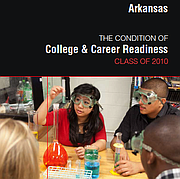Amendment 3 was written to deceive voters, local faith and civil rights leaders said Thursday afternoon.
The Rev. John Bennett, the Rev. W.T. Edmonson and Nimrod Chapel Jr. were among panelists who spoke against Amendment 3 during an online news conference and question-and-answer period held via Zoom.
Missouri citizens voted in 2018 by large margins - an almost 2-to-1 majority - in favor of Clean Missouri, which among other things, set up rules for nonpartisan legislative redistricting.
"It seems that we've come to a position with the Legislature that they're not sure who is in charge - and who is supposed to do what they say," said Chapel, president of the Missouri State Conference of the NAACP. "The voters came out and affirmatively said, by large margins, that we wanted pro-democracy measures."
And with Amendment 3, the Legislature responds by saying, "We like some, but we don't like others, so we're just going to take these out," Chapel continued.
"Either they think we the voters, the people of Missouri, are unable to read or are so simple that we can be tricked with plain-spoken words on a page," he said. "And that's just not the case."
From the time Clean Missouri passed in 2018, politicians had been working on some argument or analysis that would say citizens voted for something that wasn't really what they wanted, he said.
The truth is Amendment 3 is what the politicians want, he said.
Amendment 3 would change the redistricting process, which voters approved in 2018. If it passes, it would give responsibility for drawing state legislative districts to a governor-appointed bipartisan commission under new rules proposed in the amendment. It would remove the nonpartisan state demographer, which voters passed.
Under the new rules, only eligible voters at the time of the census would be counted to create the new districts, removing about 1.5 million children and minorities from the process.
And the authors of the amendment tried to bury the details of the changes within the fine print, speakers argued during Thursday's news conference.
Two Missouri courts ordered the language describing the measure on the ballot to be changed.
Original language focused on changes to lobbying rules (reducing lobbyists' gifts to candidates or their staff by $5 and reducing gifts to state senators by $100). The language avoided details about redistricting.
Amendment 3 has only two small changes to lobbyists' gifts, while the vast majority of it is about redistricting, said Sean Soendker Nicholson, who moderated the discussion.
"Voters aren't going to like the fine print," Soendker Nicholson said. "Amendment 3, at the end of the day, is about lobbyists and political operatives drawing maps to protect their favorite politicians and protect their favorite parochial interests."
The goal is to create as many "super-safe" districts as possible so voters can't hold them accountable, Soendker Nicholson said.
Missouri Faith Voices board member W.T. Edmonson said voters overwhelmingly passed Clean Missouri because they wanted to support fair and competitive elections.
Amendment 3 would undo what voters accomplished less than two years ago, he pointed out.
Written to protect incumbent legislators, Amendment 3 would hurt communities, he said. If it passes, Missouri's politicians would not have to work for the people of the state.
"Politicians should not try to trick voters into voting for a plan designed to protect incumbent politicians in super-safe districts," he said. "Voters select politicians. Politicians don't select voters."
Working for just public policy is an essential element of our faith, said Bennett, a retired pastor who served in Jefferson City.
Amendment 3 is designed to make Missouri the first state to not count children and people of color in district maps, he said.
All communities in the state would be hurt by the amendment, he continued.
"Amendment 3 is not a partisan issue," Bennett said. "It is an issue of right and wrong."
The News Tribune reached out to local lawmakers who voted in favor of placing the measure on the ballot - Sen. Mike Bernskoetter, R-Jefferson City; Sen. Jeanie Riddle, R-Mokane; and Rep. Sara Walsh, R-Ashland - but did not immediately receive responses Thursday.
Rep. Dave Griffith, R-Jefferson City, and Rep. Rudy Veit, R-Wardsville, voted against the joint resolution that created the measure.


